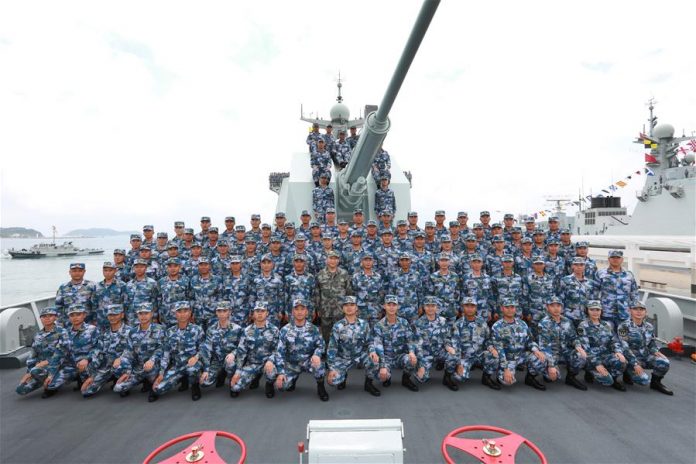Why did they send a huge balloon to spy on America? And who still uses balloons?
China remains inscrutable: Why did it send a spy balloon to traverse the entire breadth of the United States just ahead of a visit by Secretary of State Anthony Blinken, which President Xi Jinping appeared to enthusiastically welcome? Surely Beijing knew its apprehension would gum up the diplomatic works.
Part of the answer may be that the US – we now know – did not publicize three earlier balloon escapades during the presidency of Donald Trump, despite his belligerence to China during at least part of his tenure, I write on Ask Questions Later.
But who on Earth still deploys spy balloons? Commentators and “China experts” have struggled to explain what’s going on after the US blasted the offending vessel out of the skies over the Atlantic on live TV on Saturday. I may not be the world’s foremost such expert, but on a TV debate on I24 News I struggled as well.
Veteran China watcher Carice Witte hypothesized that the Chinese didn’t mind being caught – because their economic troubles (a crisis not unlike the West’s subprime meltdown of 2008) and accelerating Covid woes made them skittish about the hosting of Blinken at a moment of misfortune and indignity.
Witte, founder and Executive Director of “SIGNAL” (Sino-Israel Global Network & Academic Leadership), called the discovery of the vessel and subsequent (yet potentially temporary) shelving of the trip a “win” for the Chinese (despite their bitter protestations over the vessel’s violent demise).
|
I conceded that the premise may be true. At least I hope it is, else a person might conclude that one of the world’s major nuclear powers is shambolically managed, with the intelligence and diplomatic apparatuses being misaligned, or worse. I noted that such a reality would eliminate a primary advantage (perhaps the only advantage) of dealing with dictatorships: the predictability of centralized rule.
The entire thing is strange: there is something cartoonish about the deployment of Hindenberg-like contraptions for spying in the satellite age. Nonetheless, it seems clear that the vessel was engaged in espionage as it appeared to maneuver quite deliberately over key strategic installations in Montana and elsewhere.
Some have asked why the Pentagon and White House allowed it to meander for some four days until it reached the Atlantic, but this seems the lesser mystery: who knew what payload it carried, or who might have been harmed by whatever falling debris.
Jonathan Shanzer, Sr. Vice President for Research at the Foundation for Defense of Democracies, posited that the scandal would open the eyes of America to its failure to make the Chinese “responsible global stakeholders.”
“We’re in the process of wagging our finger at a whole bunch of other allies telling them not to engage as we did for the last several decades,” he said. “We’ve got a lot of work ourselves if the goal is to decouple.”
I’m not so sure about decoupling. The US imports about a half trillion dollars’ worth of goods (and a few services) from China, running a $350 billion trade deficit, and China holds over $1 trillion of US debt. There is a lot of potential for mischief there – an economic version of mutual assured destruction.
In an odd way, the enterprise itself is in the zone of fair enough: China spies on America in other myriad ways, industrial and strategic – and let’s just say that the world is no stranger to American espionage as well.
What may be worse is the blatant mendacity of Chinese officials who reacted to the apprehension with absurd claims that the vessel was civilian (something about weather, perhaps) and had strayed off its path. I am concluding that in the digital era of global transparency, blatant lies have outlived their usefulness for diplomacy (de rigeur though they may be in politics, alas).
In the background is Taiwan: if Xi should decide to emulate Vladimir Putin with what he views as a breakaway province, the combustibility factor will be very high.
Taiwan, of course, puts paid to the theory that there is something about the Chinese culture that is antithetical to democracy – and this affront may be more than the Chinese Communist Party can bear.
Moreover, its per capita GDP of over $60,000 annually is about five times that of China’s, reminding everyone that there is more to prosperity than nominal scale.
Decades of economic growth have indeed made China’s economy large, but it still only has a proportional impact, with about a sixth of the people and a sixth of the GDP. The United States, with less than 5% of the global population, accounts for between a third and a quarter of planetary economic output. That’s what real prosperity looks like.

















